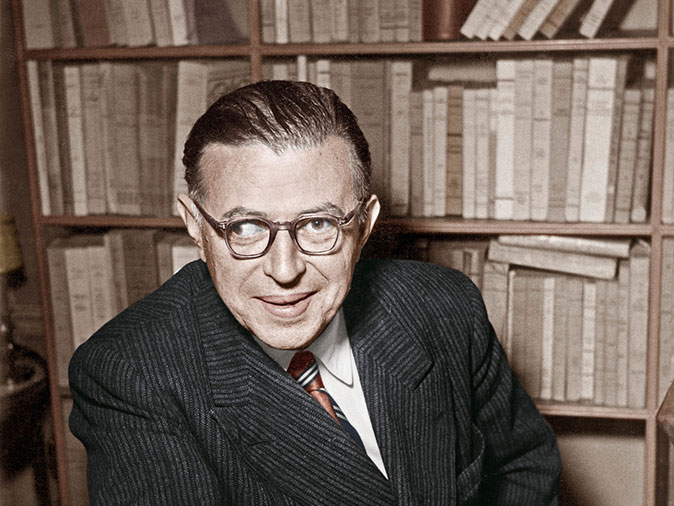In the Boston Review, philosopher Ronald Aronson aims to revive the existentialist Marxism of Jean-Paul Sartre, which seems like a relic from a bygone age. Aronson recounts how Sartre gradually came to embrace Marxism in the middle of his career, even as he sought to supplement it with existentialist ideas of individuality and freedom. Aronson then argues that Sartre’s existentialist Marxism, with its recognition of human agency within oppressive social structures, is more relevant today than ever. An excerpt:
It was Sartre’s discovery of political commitment, socialism, and Marxism that enabled him to move away from the twin impasses immortalized in his precepts “Hell is other people” (No Exit) and “Man is a useless passion” (Being and Nothingness). When he entered the world to stay as a political essayist, dramatist, and social philosopher—as well as an activist—it was in relation to Marxist movements, societies, and ideas. After the Liberation, talk of revolution, the existence of the Soviet Union, and the vitality of the massive French Communist Party (PCF) made it possible for many to believe that, in however distorted and ugly a manner, a better world was coming into being. Both politically and philosophically Sartre became preoccupied with Marxism, and he remained so for three-quarters of his productive life.
A glimpse of this burgeoning interest in Marxism can be found in Sartre’s French newspaper articles at the time of his visit to the United States in 1945. It was in these pieces, unknown in the United States until 2001 and never republished in French, that he first used Marxist categories to explain U.S. society and its working class. He stressed that U.S. workers were “not yet proletarians” because they were “imprisoned” by individualism and enjoyed “apparent equality.” A few months later came a rather abstract effort in “Materialism and Revolution” to offer existentialism as an alternative to Stalinist Marxism. This essay shows no reading of Marx and Engels—that would not come until its republication in 1949—but it does cite Stalin’s Dialectical and Historical Materialism (1938). Sartre’s aim was to replace the determinism of Soviet Marxism with the human impulse to transform and create—that is, with freedom—as the basis of revolution. Other signs of a growing attention to politics were apparent; this essay appeared around the same time of his call for writers’ political engagement—for a littérature engagée.
Image of Jean-Paul Sartre via the Times Literary Supplement.
